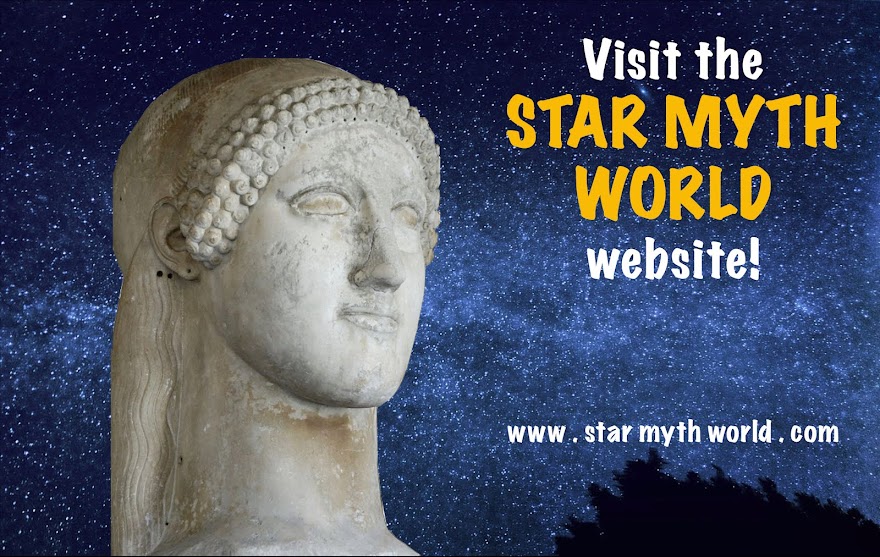My new website, Star Myth World dot com, contains a "Resources" page where you will find links to online versions of older texts now in the public domain, including Alvin Boyd Kuhn's Lost Light, the Astronomico-Theological Lectures of Robert Taylor, the Ganguli translation of the Mahabharata, and two different literal translations of the Odyssey which were published during the 1800s.
To find the "Resources" section of that site, you can use the menu which is found at the bottom of each page (in the footer) rather than the main menu that is found across the top of each page (or, for mobile users, which is opens up onto part of your screen when you tap on the three parallel horizontal lines near the top-right corner of your screen).
While I believe that the Robert Fagles translation of the Odyssey is one of the most inspired and moving English translations of that ancient text available to us, and have "sung its praises" many times before in blog posts (and in my books), most recently here, I also believe that using a literal or even a "word-for-word literal" translation (in which the translator attempts to give us a translation of each and every word in the original) can offer insights available in no other way short of learning the special form of ancient Greek used in the Iliad and the Odyssey and studying them in their original form.
Of course, a literal and especially a "word-for-word literal" translation will not be as smooth or as easy to follow as one that attempts to give the sense of the original in syntax and formulations that are more familiar to speakers of the language into which the original is being translated. For this reason, if you really want to "get closer" to the text of a profound ancient text such as the Odyssey, it is probably helpful to become familiar with a few different translations, to see how different translators have attempted to render certain passages and concepts.
Among those different translations, I would of course recommend the Fagles translation, but I would also recommend a very literal word-for-word translation as well, and there are more than one available on the web (some, from the 1800s, linked in the "Resources" page as mentioned).
For those who wish to listen to the Odyssey, there are audiobooks of various translations available -- including an audiobook of the Robert Fagles translation read by the great Ian McKellan (who of course is most familiar to most readers for his unforgettable performance in bringing to life Gandalf in the Lord of the Rings and Hobbit films of Peter Jackson; previous posts such as this one have discussed some of the celestial themes in the Lord of the Rings, and my most-recent book Star Myths of the World, Volume Two makes some parallels between an important aspect of the character of Gandalf and what I take to be one of the central themes in the action of the Iliad, which of course is the companion epic to the Odyssey).
And now, for those who wish to listen to the Odyssey in a literal word-for-word translation, I have started a little "side project" in which I read from the translation of "the Rev. Dr. Giles," which was published some time in the 1800s but which actually has no date of publication in the original volumes (it was published in four volumes -- all of those are linked on the "Resources" page of my new website).
I am actually also quite partial to the literal translation by Theodore Alois Buckley, published in 1896, and also linked on the "Resources" page, but unfortunately it only goes up through the thirteenth book of the Odyssey (which is divided into a total of twenty-four books). Therefore, in my "audio Odyssey project" I am using the Dr. Giles literal translation.
The first few recordings in this series are included towards the bottom of the "Resources" page of the Star Myth World dot com website. The entire collection of recordings has its own webpage here -- new recordings will be added there as each is completed.
In the era of digital files, podcasts and audiobooks, it has become quite easy to listen to informative material while doing the dishes, riding on the bus to work, picking weeds in the garden, driving long distances (or just around town), or other necessary but sometimes monotonous tasks of daily life. Of course it is also good to spend some time alone with one's own thoughts, without listening to anything else, but for the times when you do want to listen to something, you can now listen to a "literal and word-for-word" translation of the Odyssey if you so desire!
Of course, this is an ongoing project -- you will see that at present, recordings are only available up through about half of Book Two. However, the most-recent does include the important speeches of Halitherses and of Mentor at the gathering of the council of Ithaca, in Book Two of the Odyssey, which are both worthy of careful consideration.
I hope you will enjoy this audio version of the Odyssey (although it won't hurt my feelings if you prefer to listen to the Robert Fagles version read by Ian McKellan either).
Additional installments of the project will be added to the "Odyssey audio project" page, which is linked near the bottom of the "Resources" page.
For your convenience, the recordings available thus far are embedded below (you can "right click" or "control-click" on the title in each bar if you wish to download the file to put it onto a different device or to save it somewhere):

